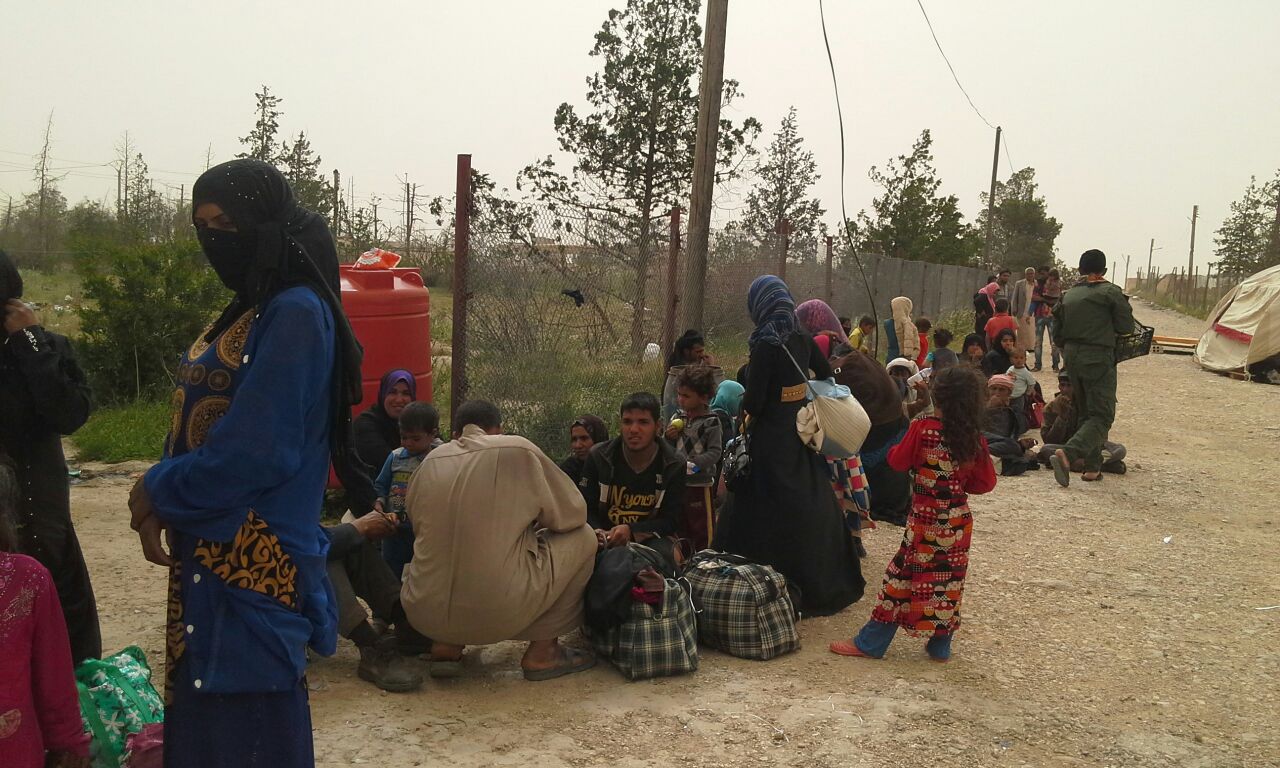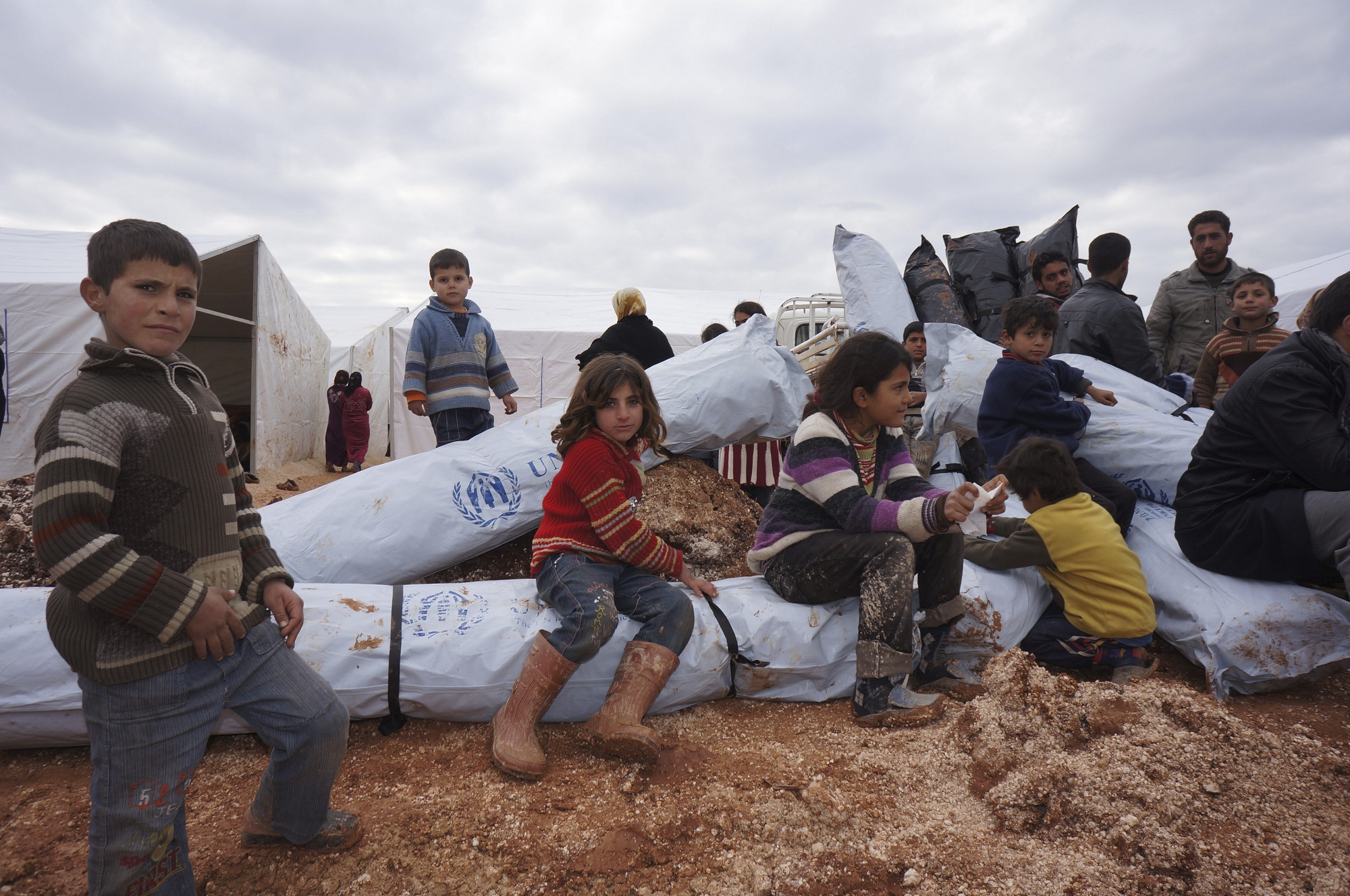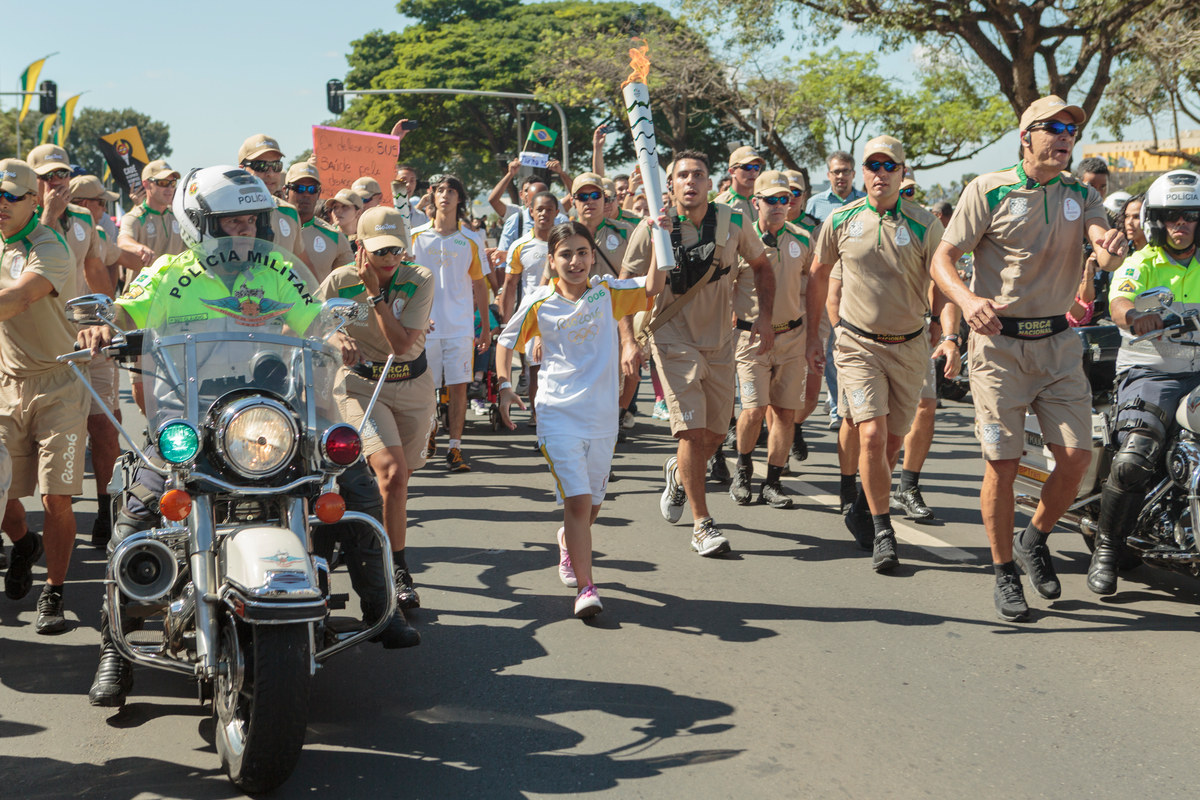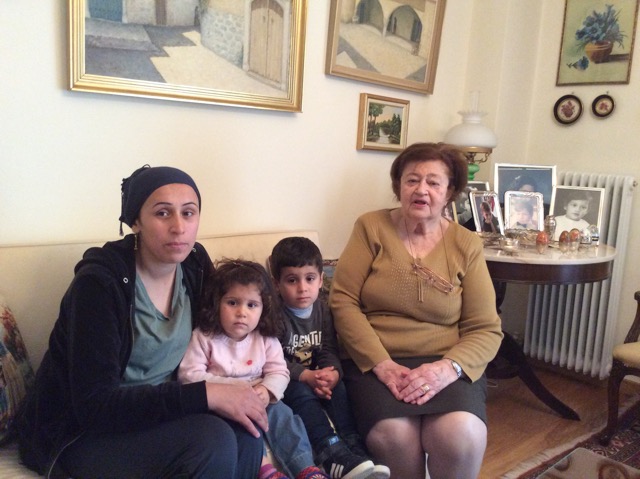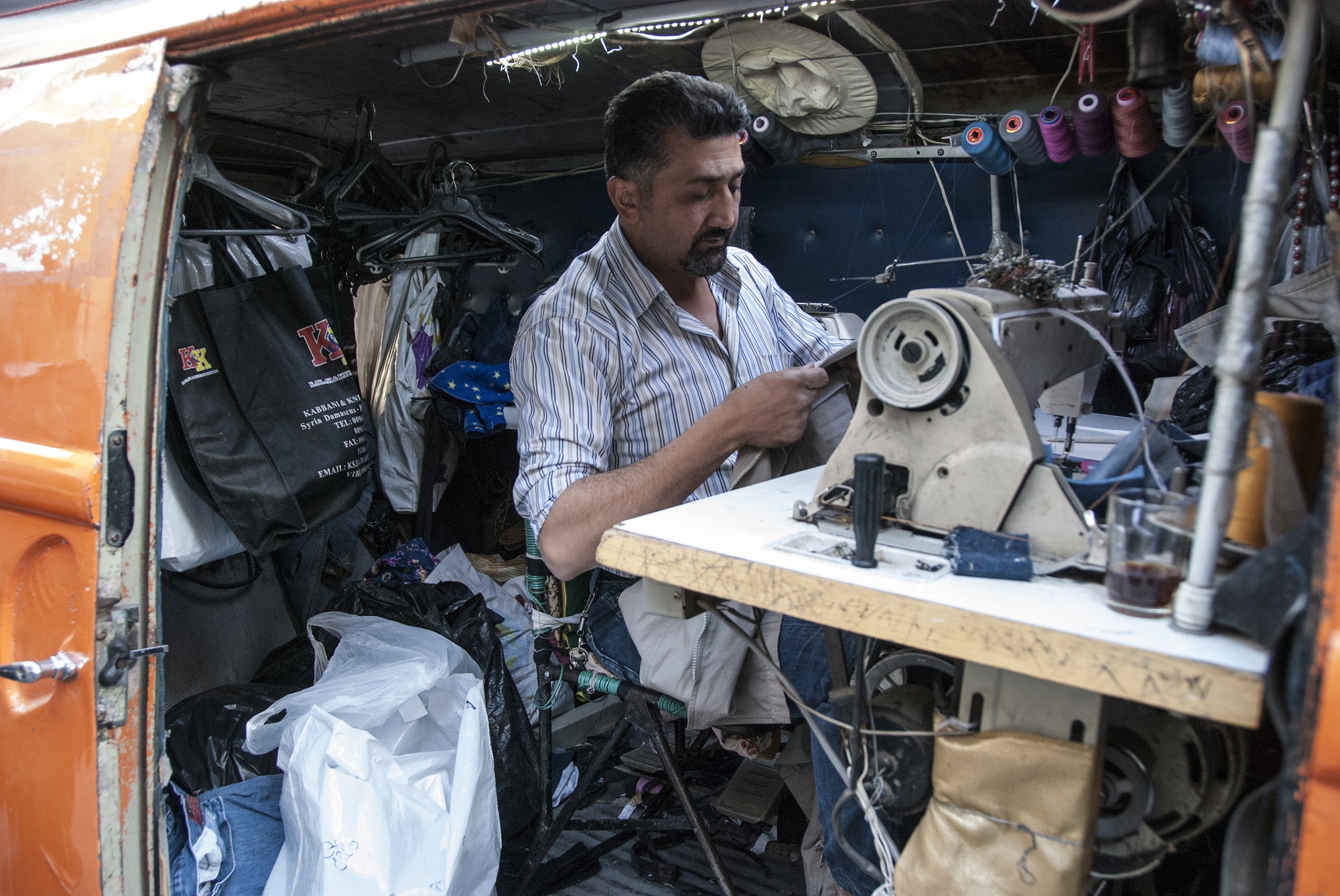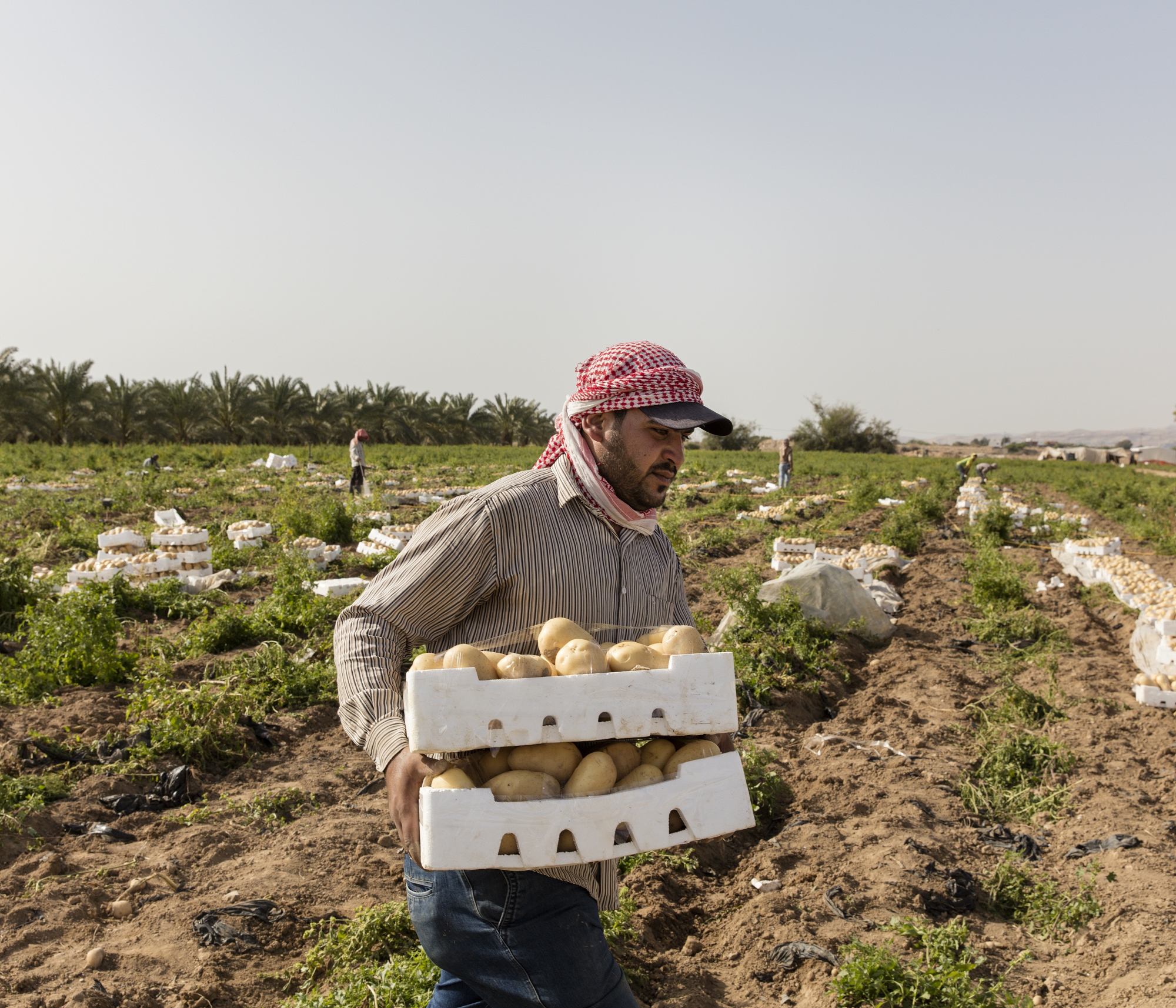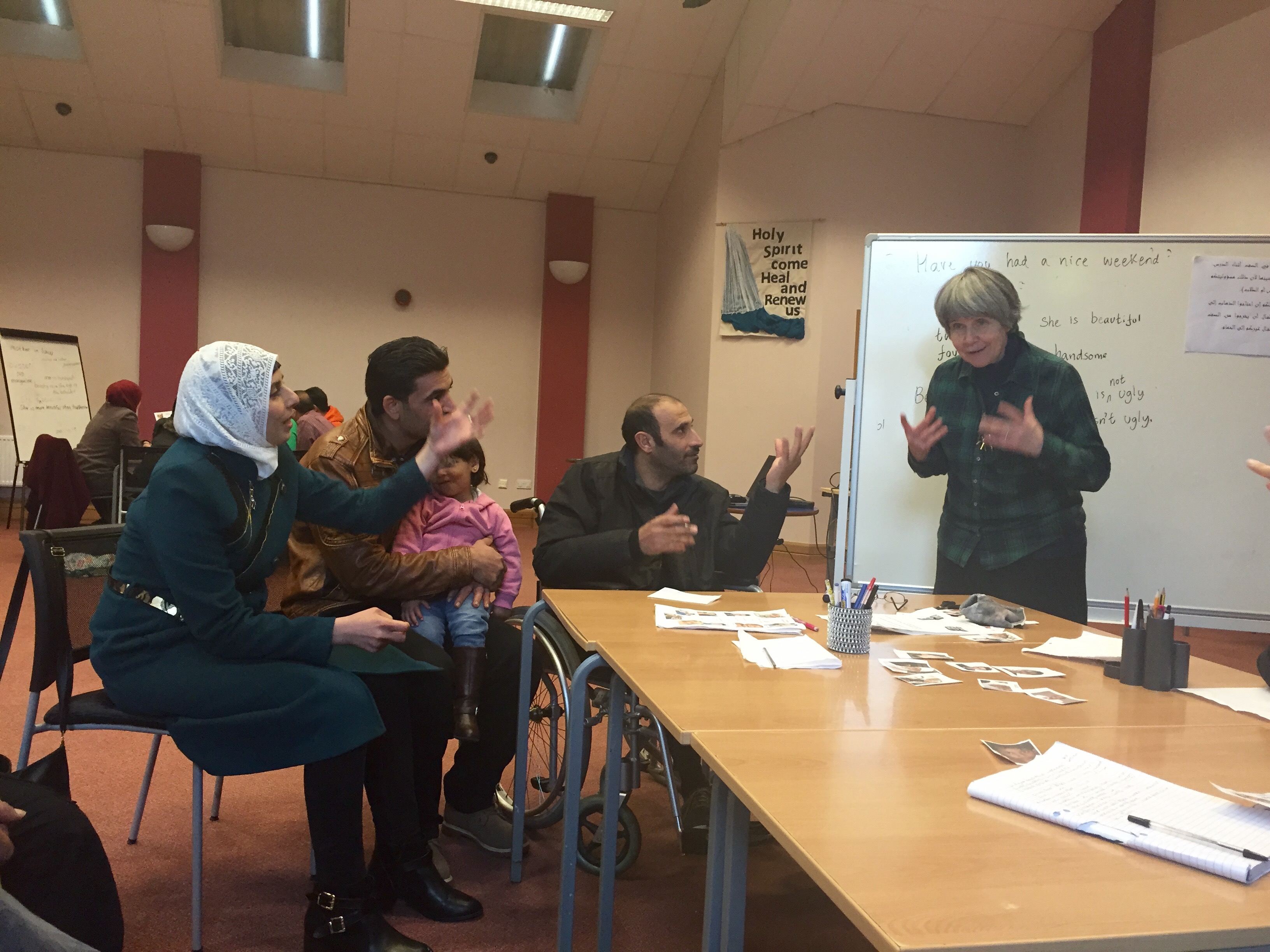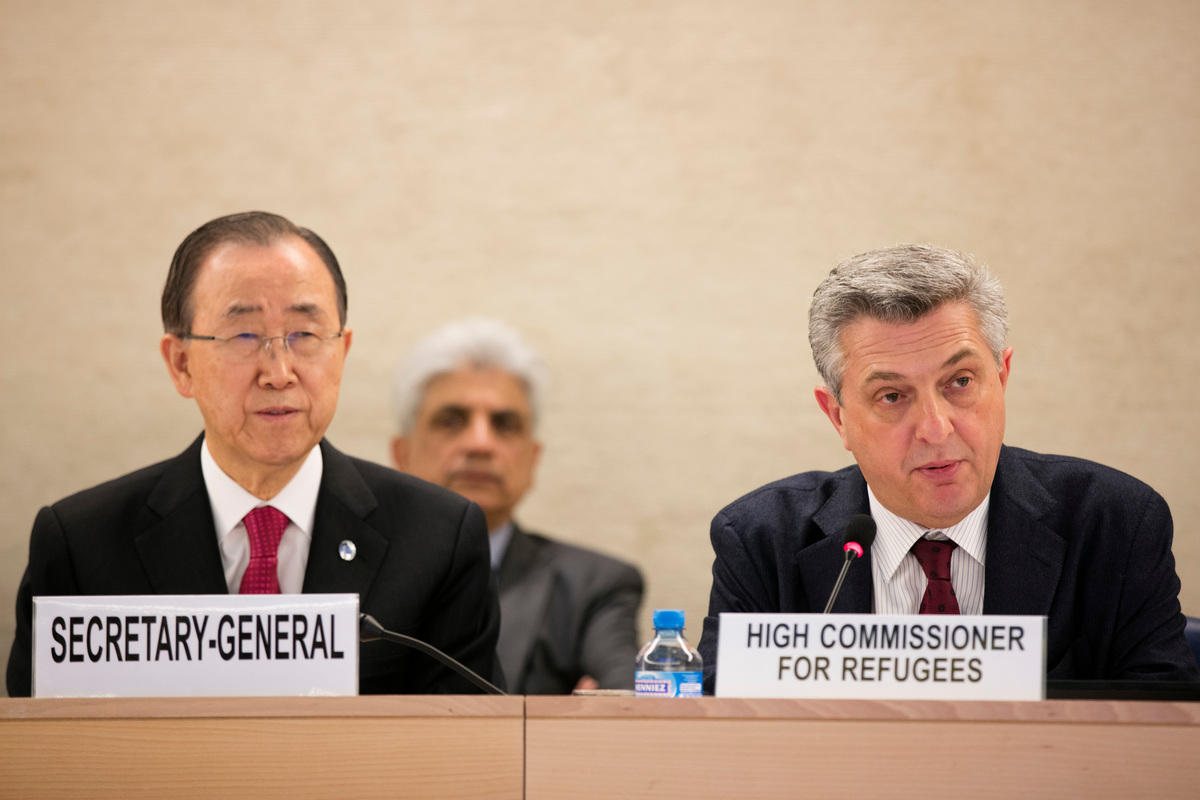Conflict puts wedding plans on hold as wounded Syrian couple flee to Lebanon
Conflict puts wedding plans on hold as wounded Syrian couple flee to Lebanon

BEKAA VALLEY, Lebanon, September 19 (UNHCR) - It is a long way from the luxury hotels of the Persian Gulf to the dusty mountain towns of Lebanon's Bekaa Valley. But Abu Omar, 28, a sales manager for five-star hotels, has just made that journey - getting shot at twice in Syria along the way.
Abu Omar, who does not want to use his real name, told UNHCR earlier this month at an empty school in Lebanon where he had sought refuge for the previous two weeks that his decision to leave Syria came down to one thing: saving his future wife.
Abu Omar had been working in the Gulf, but earlier this year he returned home to Damascus to get married. One afternoon he was riding in a car with his fiancée and future in-laws to buy a dress near the family home. As the car approached a checkpoint, a sniper opened fire from a nearby rooftop.
The driver slammed on the brakes and yanked the steering wheel sharply. But 24 rounds shattered the back window and punctured the doors. Abu Omar's fiancée was hit in the stomach by an exploding round, while the driver was killed by a bullet in the spine.
The survivors made their way to a nearby hospital, where a doctor stitched up Abu Omar's fiancée's abdomen with staples. But the hospital director warned them not to stay, as he expected a visit by security officers checking on new patients as potential opposition sympathisers. Nor was it safe to return home.
Abu Omar took his fiancée and her family into hiding in the basement of a bakery in the neighbourhood. "It was not a healthy place," he recalls. His future wife's condition worsened; her fever would not go away.
To get help, Abu Omar called the surgeon who had stitched her up in the first place and then risked the journey to pick him up and bring him back to the bakery, as the doctor's home was also under fire. "The funny thing," Abu Omar says, "is he forgot his medical kit!" (Abu Omar bought a new instrument and the doctor removed the staples and prescribed antibiotics.) When his fiancée stabilized, he decided to leave his country.
The same day they were scheduled to flee he came under fire again, he says. This time he was hit in the right shoulder, but the bullet exited cleanly. "I am not going back until it is safe," he says from his new temporary home in Lebanon's Bekaa Valley, gazing back at the brown Syrian hills.
He and his fiancée fled across the border to Lebanon, where she is getting treatment in the local hospital. Abu Omar is among 60,000 Syrian refugees now sheltering in Lebanon. UNHCR and its partners are helping refugees like Abu Omar and his fiancée access health care and other services in Lebanon, as well as accommodation.
"I came back to Syria to get married and I got stuck," he says. Now his life has veered in a completely unexpected direction. At least they are safe, he admits. And with luck, they will soon be married.
By Andrew Purvis in the Bekaa Valley, Lebanon


